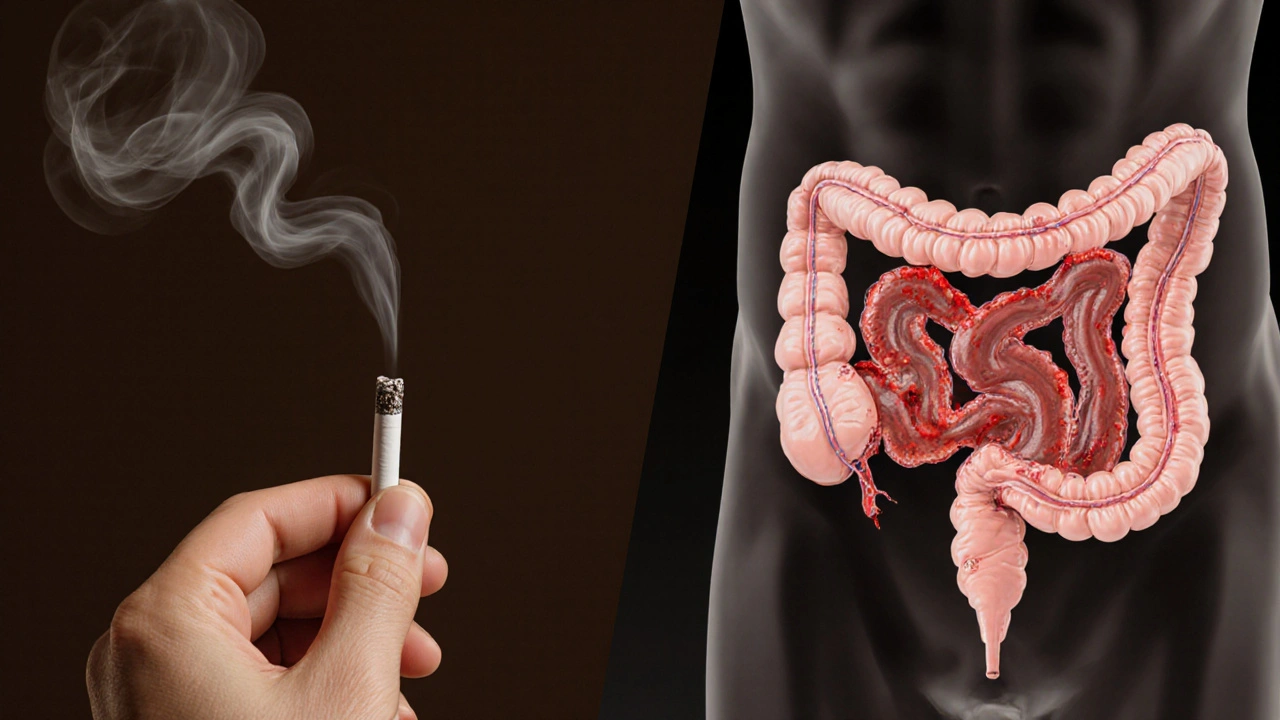When we talk about smoking impact on health, the wide‑ranging physical and mental effects caused by inhaling tobacco smoke. Also known as tobacco‑related health risk, it affects nearly every organ system. One of the most common forms of nicotine addiction, a physiological dependence on nicotine that drives repeated smoking, creates a powerful cycle that’s hard to break. At the same time, smoking directly raises the risk of cardiovascular disease, conditions like heart attack, stroke and peripheral artery disease. Even people nearby inhale secondhand smoke, the mixture of sidestream smoke and exhaled breath that carries many of the same toxins, putting families at risk.
The lungs bear the brunt of tobacco exposure. Chronic bronchitis, emphysema, and lung cancer are directly linked to years of inhaling tar and carcinogens. Studies show that long‑term smokers are up to 25 times more likely to develop lung cancer than non‑smokers. Beyond the respiratory system, smoking damages the skin, speeds up aging, and reduces fertility in both men and women. The immune system also weakens, making infections harder to fight and worsening autoimmune conditions.
On the mental side, nicotine hijacks brain chemistry. The dopamine rush reinforces the habit, while withdrawal spikes anxiety and irritability. Understanding this smoking impact on health helps you see why quitting feels like climbing a steep hill. Psychologically, triggers such as stress, social settings, or even certain foods can spark cravings. Recognizing these cues is the first step toward breaking the loop.
Financially, the cost adds up fast. A pack a day can cost thousands of dollars a year, not counting medical expenses from smoking‑related illnesses. For families, the hidden toll includes lost work days and the emotional strain of caring for a loved one with a smoking‑related disease.
Fortunately, many tools exist to cut the damage. Medications like nicotine replacement therapy, bupropion, or varenicline reduce cravings. Behavioral programs teach coping strategies, and support groups provide accountability. Regular health checks can catch early signs of disease, giving a better chance of successful treatment.
Below you’ll find a curated collection of articles that dive deeper into each of these topics—how smoking harms specific organs, the psychology behind addiction, ways to protect those around you, and step‑by‑step guides to quit for good. Explore the posts to arm yourself with the knowledge and actions you need to protect your health and that of your family.

Explore how smoking worsens proctitis symptoms, triggers flare‑ups, and what steps you can take to reduce damage and improve outcomes.
Read More© 2026. All rights reserved.